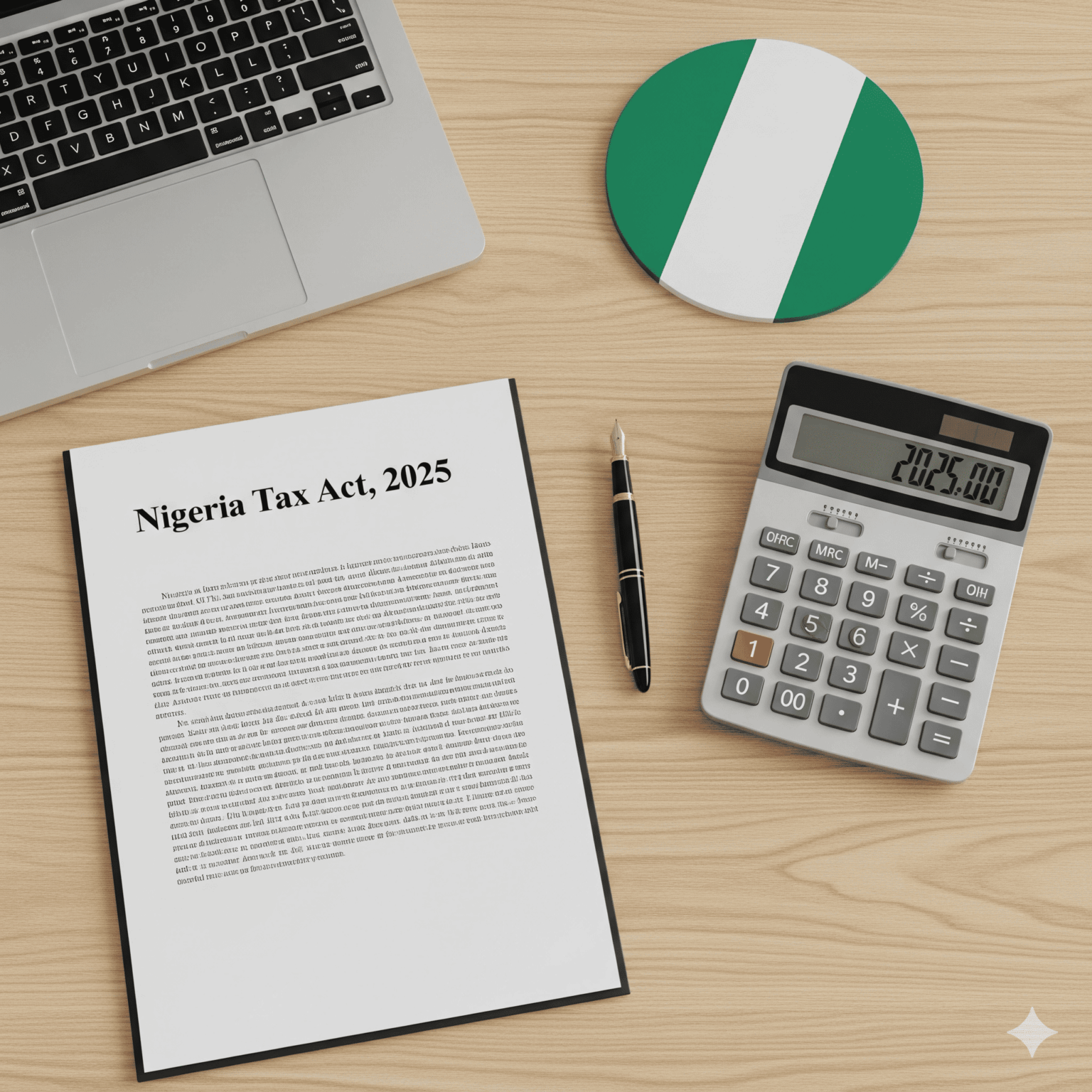The Federal Republic of Nigeria has enacted a significant piece of fiscal legislation, the Nigeria Tax Act, 2025.
This Act represents a landmark reform, designed to modernize the nation’s tax system by consolidating numerous existing statutes (including the long-standing Personal Income Tax Act (PITA)) into a single, comprehensive legal framework.
The primary objectives of this reform are to enhance clarity, streamline administration, improve compliance, and establish a more equitable tax structure for all citizens.
Key Features of the Reforms
The reforms consist of four new acts:
- Nigeria Tax Act (NTA), 2025
- Nigeria Tax Administration Act, 2025
- Nigeria Revenue Service (Establishment) Act, 2025
- Joint Revenue Board (Establishment) Act, 2025
These laws consolidate many previous tax statutes, revise rates and reliefs, clarify residency, enhance compliance, and aim to broaden the tax base
A central component of this new legislation is the revision of the Personal Income Tax (PIT) framework.
This analysis provides a detailed examination of the new progressive tax system, the calculation of tax liability, and the role of statutory deductions for salaried individuals.
The Principle of Progressive Taxation
The new PIT system is fundamentally based on the principle of progressive taxation. This is a system wherein the tax rate increases as the taxable amount increases.
A critical feature of this model is the use of income bands or brackets, where different rates are applied to different portions of an individual’s income.
It is a common misconception that an individual’s entire income is taxed at the single rate corresponding to their income level. The correct application, as mandated by the Federal Inland Revenue Service (FIRS) for the Pay-As-You-Earn (PAYE) scheme, is a tiered calculation.
Each successive rate is applied only to the portion of income that falls within its specific band.
The Revised Tax Bands and Rates
The Nigeria Tax Act, 2025, establishes six income bands with corresponding tax rates applicable to annual taxable income:
| Annual Taxable Income (₦) | Tax Rate |
| First 800,000 | 0% |
| Next 2,200,000 (up to 3M) | 15% |
| Next 9,000,000 (up to 12M) | 18% |
| Next 13,000,000 (up to 25M) | 21% |
| Next 25,000,000 (up to 50M) | 23% |
| Above 50,000,000 | 25% |
A key provision of this new structure is the tax-exempt threshold of ₦800,000. Individuals with an annual income at or below this amount are not subject to Personal Income Tax, providing significant relief to low-income earners.
Calculation of Tax Liability: A Practical Illustration
To illustrate the mechanics of the progressive system, consider an individual with an annual income of ₦3,000,000. The tax liability is calculated as follows:
- First Band: The initial ₦800,000 is taxed at a rate of 0%.
- Tax Due = ₦800,000 * 0% = ₦0
- Second Band: The remaining income (₦3,000,000 – ₦800,000 = ₦2,200,000) falls into the second band and is taxed at a rate of 15%.
- Tax Due = ₦2,200,000 * 15% = ₦330,000
- Total Annual Tax: The total PIT liability is the sum of the tax calculated for each band.
- Total PIT = ₦0 + ₦330,000 = ₦330,000
This annual liability is then prorated over twelve months to determine the monthly PAYE deduction, which amounts to ₦27,500.
Determining Taxable Income: The Role of Statutory Allowable Deductions
An essential preliminary step in calculating tax liability is the determination of an individual’s taxable income.
The new law specifies that tax is levied not on gross earnings, but on the net income remaining after certain statutory deductions have been made.
These allowable deductions ensure that essential contributions and specific expenses are not subject to taxation. The primary deductions include, but are not limited to:
- Contributions to an approved Pension or Retirement Scheme.
- Contributions to the National Housing Fund (NHF).
- Contributions to the National Health Insurance Scheme (NHIS).
- Premiums for Life Assurance policies.
- Interest paid on mortgage loans for an owner-occupied residence.
Only after these recognized reliefs have been subtracted from an individual’s gross income do the progressive tax bands come into effect.
Conclusion
The Nigeria Tax Act, 2025, constitutes a strategic effort to create a more efficient, equitable, and transparent tax system. For individuals, the revised PIT structure provides notable relief for low-income earners and clarifies the method for calculating tax obligations. A thorough understanding of the principles of progressive taxation and the application of allowable deductions is crucial for proper financial planning and compliance.
This reform signals a move towards a modernized fiscal framework aimed at fostering sustainable economic development in Nigeria.





